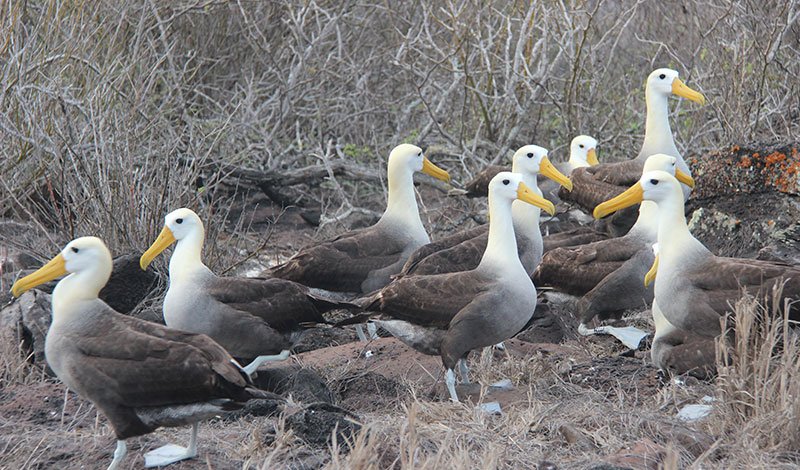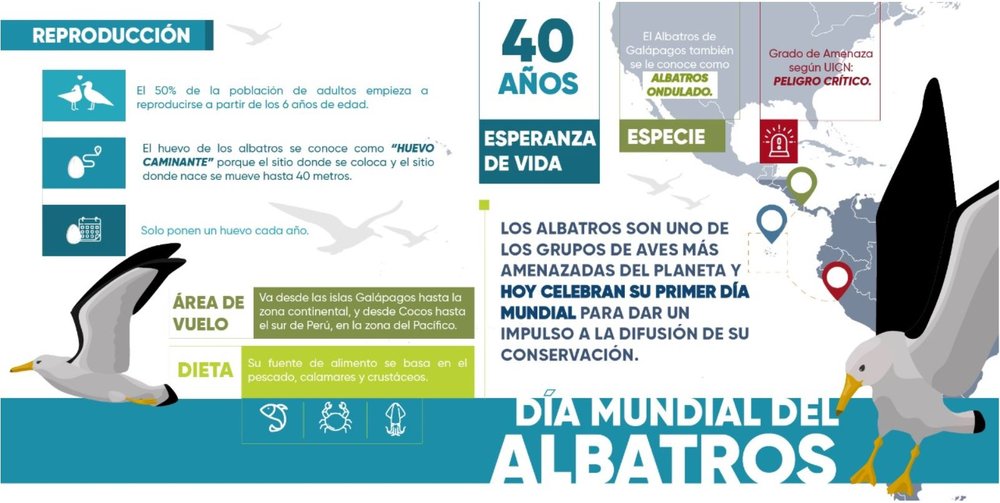Author: Isabel Grijalva
On the 19th of June, 2020, we celebrated World Albatross Day for the first time. The date has been chosen by Agreement on the conservation of Albatross and Petrels, ACAP, to honor these magnificent birds and to highlight the current conservation crisis that threatens them.

The Galapagos albatross (Phoebastria Irrorata), is also known as waved Albatross and is "critically endangered", according to the International Union for Conservation of Nature, IUCN.
The Charles Darwin Foundation (CDF) joins this important celebration in its first edition. This year's global theme is "Controlling Invasive Island Species" because many albatross species face threats from introduced species such as mice, rats, cats, and pigs on the islands where they nest and breed. One important case of invasive species in Galapagos was the goat (Capra hircus), a species introduced to Española Island, which caused great harm to the reproductive success of the albatross on this island. Fortunately, goats were eradicated in 1978.
Another threat to albatross populations is interaction with fishing lines and hooks, that result in the deaths of thousands of albatrosses and petrels each year. For the Galapagos albatross, the bycatch outside the Galapagos Marine Reserve is the main threat to the species.
The CDF and the Galapagos National Park Directorate maintain the ecological and epidemiological, monitoring project of the Galapagos albatross. This project is led by Gustavo Jiménez a CDF scientist, who in collaboration with national and international universities, has obtained the results that have helped in the supervision of the species.

For additional information on World Albatross Day, you can visit the new ACAP website, www.acap.aq.
Here you will find available resources including free posters, videos, conferences, species summaries, puzzles, games and competitions.
For more information, please visit:
• Día Mundial del Albatros 2020
• Información sobre el ACAP




